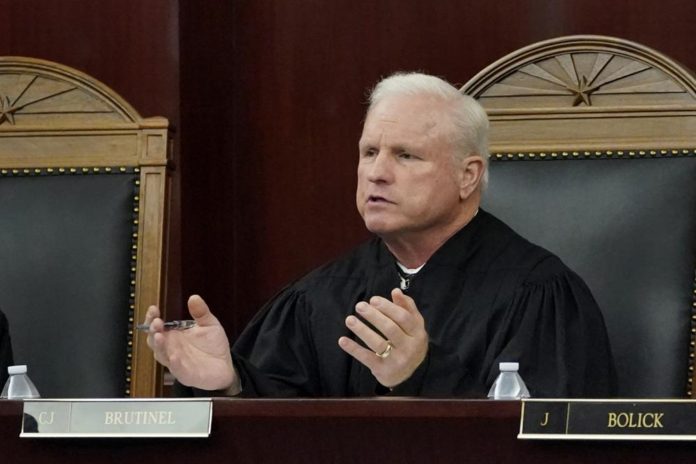
A judge on Friday declared that a tax on high-earning Arizona residents to fund education spending that voters approved in 2020 can’t be enforced because of a state Supreme Court ruling and ordered its collection permanently blocked.
The decision means that Proposition 208′s plan to hire more teachers and give big raises to educators won’t happen. Neither will raises for counselors, bus drivers, and other support staff, nor cash for teacher training, vocational education, and other initiatives.
The ruling from Maricopa County Superior Court Judge John Hannah was widely expected after the Supreme Court ruled in August that the tax was unconstitutional if it put schools above a legal spending cap. It sent the case back to Hannah to make that determination.
Backers of Proposition 208 and Republican opponents that included the House Speaker and Senate President agreed in January that new revenue from the tax on the wealthy was almost certain to put spending over that threshold.
Hannah wrote that because of the way the Supreme Court ordered him to consider the legal issues, he had no choice but to invalidate Proposition 208.
But his ruling also indirectly criticized the high court for its reasoning, noting that while the Legislature retains the power to fix problems with laws it passes, the ruling removes that opportunity when the people bypass lawmakers to enact their own laws.
“The logic of (the high court decision) entirely relieves the Legislature of any political responsibility for accommodating the policy decisions the electorate makes by initiative,” Hannah wrote. “If legislators can find a legal flaw in a measure they disagree with as a matter of policy, their incentive is now not to fix it but instead to exploit it.
“They can then point to the political obstacles created by their own opposition as a reason for the courts to stop the political fight and declare the Legislature the winner,” he wrote.
The ruling came after years of efforts by education proponents to boost school spending in the state. Arizona has some of the lowest teacher pay and per-student spending in the nation, even after the Republican-controlled Legislature and GOP Gov. Doug Ducey increased spending by more than $1 billion a year since 2018.
Ducey, a proponent of tax cuts who has repeatedly criticized Proposition 208 and vowed to get it killed one way or another, hailed the ruling as a “win for Arizona taxpayers.”
“It’s another step in undoing the damage of Prop 208 and making sure we continue to benefit from having the lowest flat income tax rate in the nation,” he said in a statement.
Diego Rodriguez, a Democratic former lawmaker running for attorney general, criticized Ducey and the court in a series of tweets.
He said Ducey was defending the state’s “broken school funding system he and the GOP manipulate to benefit themselves and their wealthy donors at everyone else’s expense.”
Rodriguez added that the Supreme Court “prioritized the will of a partisan Legislature over the will of the people.”
The constitutional cap on school spending passed by voters in 1980 has been a major issue this legislative session, and the House and Senate waived its provisions for this budget year last month.
Schools were going to reach their limit by March 1, in part because when lawmakers extended another voter-approved tax in 2014, they allowed it to be counted against the cap.
Schools would have been forced to enact major spending cuts because they would have been unable to legally spend more than $1 billion the Legislature already appropriated for the current school year.
Lawmakers can vote to raise the constitutional spending cap year to year.
The Supreme Court decision in August said that a Proposition 208 provision that created a workaround for the spending cap was unconstitutional.
The initiative was expected to raise about $800 million a year for K-12 education and got around the cap by calling the money “grants.”
Republican lawmakers and Ducey reacted last year by enacting a new tax category that would exempt small business income now taxed on personal returns from the Proposition 208 tax, cutting about $292 million from the tax revenue schools would get under the initiative.
Lawmakers also created a way for those taxpayers still hit by the surtax not to pay it directly by backfilling most of the promised Proposition 208 money with general fund cash.
Proposition 208 imposed a 3.5% tax surcharge on income above $250,000 for individuals or above $500,000 for couples.
The Invest in Education Act was backed by education advocates across Arizona and was an outgrowth of a 2018 teacher strike that resulted in educators getting a 20% pay raise but fell short of other major school funding boosts.
Despite the teacher raises and more than $1 billion in new education spending pumped into education in recent years, Arizona schools remain among the lowest-funded in the nation, and teacher pay is ranked near the bottom.
Republished with the permission of the Associated Press.













